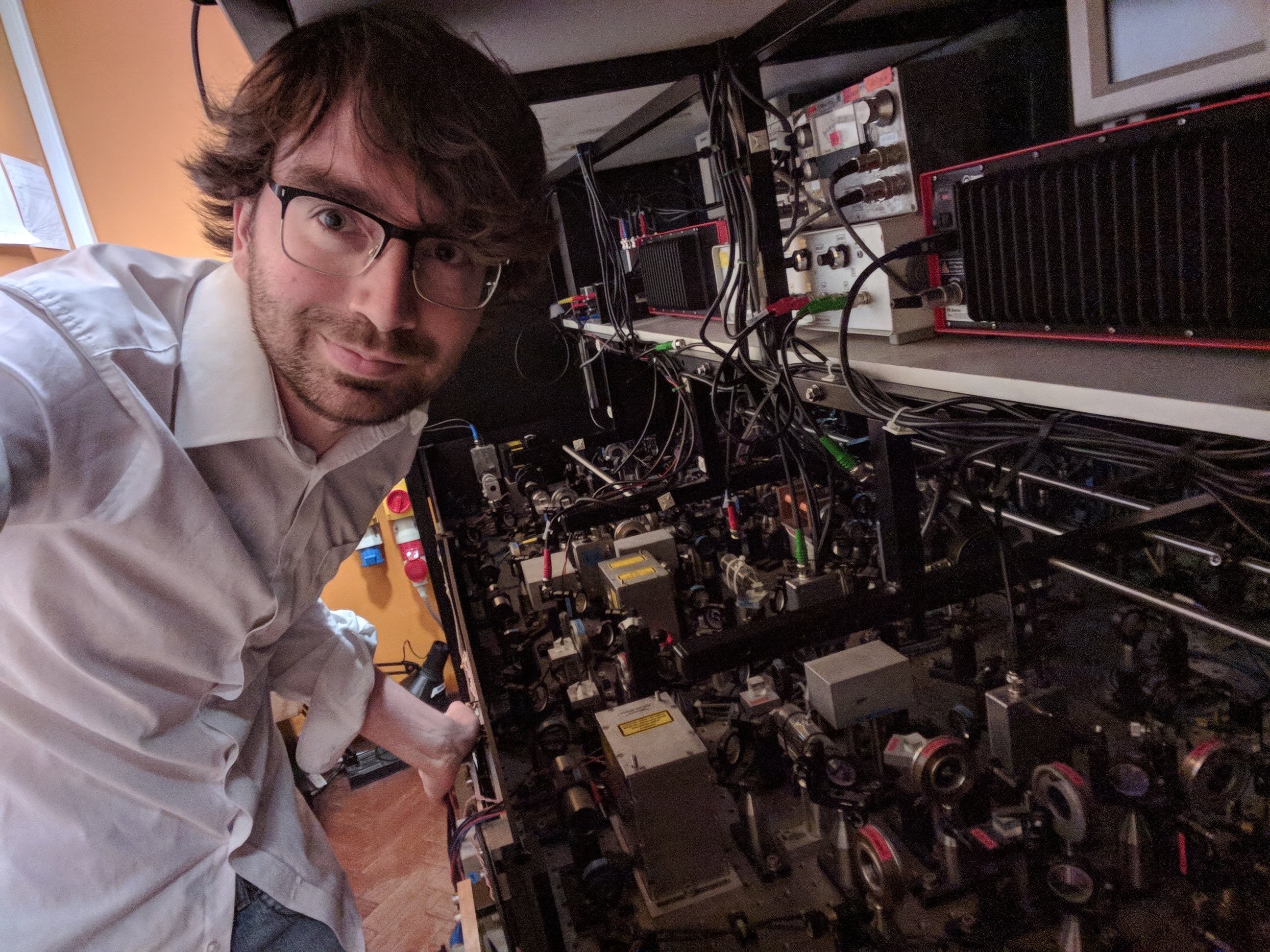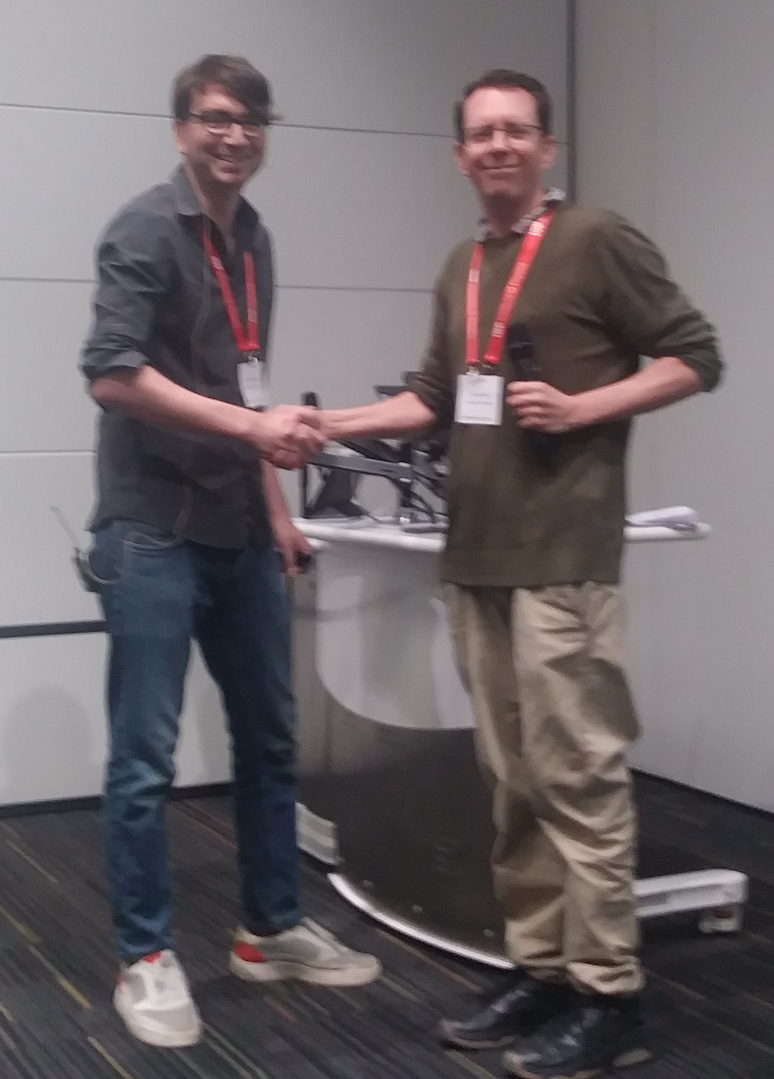Dr Phil Gregory awarded prestigious Royal Society University Research Fellowship and the Institute of Physics Bates Prize 2023

Dr Phil Gregory from the Quantum Light and Matter (QLM) research group has recently been awarded a prestigious Royal Society University Research Fellowship, and is now the recipient of the 2023 Institute of Physics Bates prize for outstanding research by an early career researcher.

Main image: Dr Phil Gregory next to an optical bench
showing some of the optical components needed to
realise a state-of-the-art cold molecule experiment.
Right: Dr Phil Gregory receiving the Bates Prize at the
QuAMP2023 conference.
The Fellowship has been awarded for Dr Gregory to pursue the research of a quantum-degenerate Fermi gas of polar molecules, while the Bates Prize is awarded to commemorate Sir David Bates FRS and his pioneering studies of atomic and molecular processes and their role in atmospheric science, plasma physics and astronomy.
Dr Gregory’s current research specialises in the production of ultracold gases of polar molecules. The ability to cool gases to temperatures within a fraction of a degree above absolute zero (-273 degrees Celsius) has revolutionised the field of atomic physics and enabled countless new insights into the weird world of quantum mechanics. Traditionally these experiments have been performed using gases comprised of single atoms, but ultracold molecules offer new possibilities due to the presence of rich internal structure and long-range dipolar interactions. Although neutral, in a polar molecule there is a separation of charge distribution, making them the electrical analogue of bar magnets. Dr Gregory will develop a new apparatus for the study of ultracold quantum mixtures and the production of a quantum degenerate gas of fermionic molecules. The molecules will be used to study exotic and novel many-body quantum phenomena such as superfluidity and the emergence of topological phase transitions. There are many weird phenomena in quantum mechanics; using one quantum system to mimic another is an excellent way to gain insight into the counter-intuitive aspect of the quantum world.
Professor I G Hughes, Head of QLM, commented: “We as a section are delighted that the ultracold molecule activity within our group is flourishing, and congratulate Dr Gregory on securing a fellowship and receiving the Bates prize. Adding fermionic polar molecules to the range of ultracold matter to be studied in Durham is an exciting development, and we look forward to important breakthroughs.”
Head of Department, professor Paula Chadwick added “This is great news and shows that Durham Physics is at the forefront of state-of-the-art experiments in the cutting-edge fields of quantum science and technology.”
For more information:
Quantum, Atomic and Molecular Physics (QuAMP 2023) | Institute of Physics (iop.org)


/prod01/prodbucket01/media/durham-university/departments-/physics/teaching-labs/VT2A9034-1998X733.jpeg)